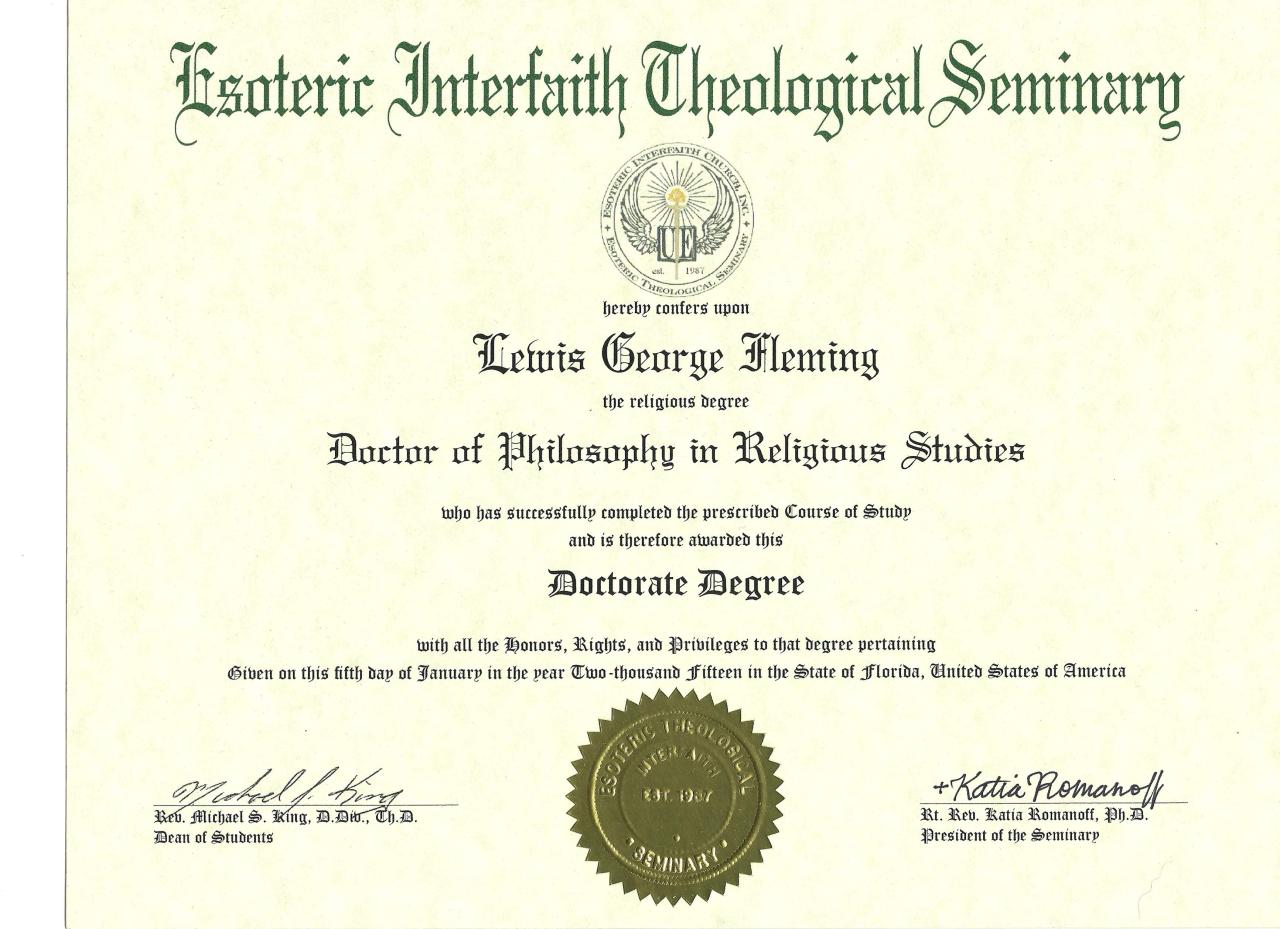Embark on an enriching intellectual and spiritual odyssey with a Doctorate in Christian Leadership. This advanced degree empowers you to delve deeply into the intricacies of Christian leadership, equipping you to navigate the complexities of faith-based organizations and inspire meaningful change in diverse contexts.
Throughout this comprehensive guide, we will explore the program structure, research focus, leadership theories, ethical foundations, organizational leadership principles, and practical applications of Christian leadership. Additionally, we will delve into career opportunities and provide answers to frequently asked questions.
Doctoral Program Overview: Doctorate In Christian Leadership

A doctorate in Christian leadership equips individuals with advanced knowledge and skills to effectively lead and manage Christian organizations and ministries. It provides a comprehensive understanding of Christian theology, leadership principles, and practical ministry applications.
The program structure typically includes coursework in biblical studies, theology, leadership theory, organizational management, and research methods. Students also engage in supervised research and complete a dissertation that demonstrates their ability to conduct independent research and contribute to the field of Christian leadership.
Program Structure
The program structure of a doctorate in Christian leadership typically includes:
- Coursework:Required courses cover foundational topics in Christian theology, leadership theory, and organizational management.
- Research:Students conduct supervised research under the guidance of a faculty advisor, culminating in a dissertation that contributes to the field of Christian leadership.
- Dissertation:The dissertation is an original research project that demonstrates the student’s ability to conduct independent research and contribute to the field of Christian leadership.
Research Focus

Christian leadership research explores the complexities of leading in faith-based contexts. It examines the interplay between spiritual and organizational dimensions, focusing on how leaders navigate the challenges and opportunities of guiding Christian communities.
Key Research Areas
Key areas of research in Christian leadership include:
- Leadership identity and formation
- Spiritual practices and leadership development
- Ethical decision-making and organizational governance
- Innovation and change management in faith-based organizations
- Cross-cultural leadership and mission
Research Topics and Methodologies
Researchers in Christian leadership employ various methodologies to explore these areas. Qualitative methods, such as interviews, focus groups, and case studies, provide in-depth insights into the experiences and perspectives of Christian leaders. Quantitative methods, such as surveys and statistical analysis, offer data on trends and patterns in leadership practices.
Mixed methods research combines both qualitative and quantitative approaches to gain a comprehensive understanding of complex phenomena.
Leadership Theories and Models

Christian leadership draws upon various theories and models to guide and shape effective leadership practices. These theories offer insights into the dynamics of leadership, providing frameworks for understanding and developing leadership skills within Christian contexts.
The application of these theories and models in different Christian contexts requires careful consideration of the specific needs, values, and cultural norms of each setting. By understanding the nuances of different contexts, leaders can tailor their approaches to maximize effectiveness and impact.
Trait Theories
Trait theories focus on identifying personal characteristics and traits that are believed to be associated with effective leadership. Some common traits include charisma, intelligence, self-confidence, and empathy. While trait theories provide a starting point for understanding leadership potential, they have limitations in predicting actual leadership performance.
Behavioral Theories
Behavioral theories focus on the observable behaviors of effective leaders. These theories suggest that leadership can be learned and developed through training and practice. Some well-known behavioral theories include the Ohio State Studies and the University of Michigan Studies, which identified specific leadership styles and behaviors associated with success.
Contingency Theories
Contingency theories emphasize that the effectiveness of a particular leadership style depends on the situation. These theories suggest that leaders need to adapt their approach based on factors such as the task, the followers, and the environment. Some common contingency theories include Fiedler’s Contingency Model and the Hersey-Blanchard Situational Leadership Theory.
If you’re interested in pursuing a doctorate in Christian leadership, you may also want to consider an MBA in Organizational Leadership. This degree can provide you with the skills and knowledge you need to lead effectively in a variety of organizational settings.
You’ll learn about topics such as strategic planning, financial management, and human resource management. An MBA can also help you develop the leadership skills you need to motivate and inspire your team.
Transformational Theories
Transformational theories focus on the ability of leaders to inspire, motivate, and empower their followers. These theories suggest that effective leaders create a shared vision, build trust, and foster a sense of purpose and commitment among their team members. Some well-known transformational theories include the Full Range Leadership Model and the Charismatic-Transformational Leadership Theory.
Servant Leadership
Servant leadership is a unique approach to leadership that emphasizes the importance of serving others. Servant leaders prioritize the needs and well-being of their followers, creating a collaborative and supportive environment. This theory has gained increasing attention in Christian leadership contexts, where it aligns with the values of humility, compassion, and service.
Ethical and Theological Foundations
Christian leadership is guided by a set of ethical and theological principles rooted in the teachings of Jesus Christ and the Bible. These principles provide a framework for decision-making, action, and behavior for Christian leaders.
Role of Scripture, Tradition, and Reason
Scripture, tradition, and reason play vital roles in shaping leadership practices. Scripture, as the inspired word of God, serves as the primary source of authority for Christian leaders. Tradition, referring to the accumulated wisdom and practices of the Christian church throughout history, offers guidance and insights.
Reason, employed as a tool for critical thinking and discernment, allows leaders to apply biblical principles to contemporary situations.
Ethical Principles, Doctorate in christian leadership
Key ethical principles guiding Christian leadership include:
Love
Love for God and neighbor forms the foundation of Christian ethics, emphasizing compassion, empathy, and service.
Justice
Christian leaders strive to uphold justice, advocating for the rights of the marginalized and oppressed.
Integrity
Honesty, transparency, and accountability are essential virtues for Christian leaders, fostering trust and credibility.
With a doctorate in Christian leadership, you can pursue a variety of career paths, including higher education. If you’re interested in the field of education, you might consider what can you do with a masters in educational leadership. This degree can prepare you for roles such as principal, superintendent, or curriculum director.
Alternatively, you could continue your education with a doctorate in Christian leadership, which would qualify you for even more advanced leadership positions in the field.
Humility
Recognizing their own limitations and dependence on God, Christian leaders approach leadership with humility and a willingness to serve.
Stewardship
Christian leaders are entrusted with the responsibility of managing resources, including time, talent, and finances, with integrity and accountability.
Theological Foundations
Theological foundations underpinning Christian leadership include:
The Trinity
The doctrine of the Trinity emphasizes the unity and diversity of God as Father, Son, and Holy Spirit, shaping leaders’ understanding of relational dynamics and leadership styles.
Incarnation
A doctorate in Christian leadership can open up new opportunities for advancement in your career. If you’re looking for a more affordable option, consider pursuing a cheapest online master’s in organizational leadership. This degree can provide you with the skills and knowledge you need to succeed in a variety of leadership roles, including those in Christian organizations.
With a doctorate in Christian leadership, you’ll be well-equipped to make a positive impact on your community and the world.
The belief that God became human in Jesus Christ reveals the importance of embodiment, empathy, and servant leadership.
Resurrection
The resurrection of Jesus Christ signifies hope, transformation, and the ultimate triumph of good over evil, inspiring leaders to persevere in the face of challenges.By adhering to these ethical and theological foundations, Christian leaders strive to embody the character and teachings of Jesus Christ, leading with compassion, integrity, and a deep commitment to serving others.
End of Discussion

As you embark on this doctoral journey, you will not only enhance your leadership skills but also deepen your understanding of Christian principles and their practical application in today’s world. With a Doctorate in Christian Leadership, you will be equipped to make a profound impact on your community, organization, and beyond.
Essential Questionnaire
What are the career opportunities available with a Doctorate in Christian Leadership?
Graduates with a Doctorate in Christian Leadership can pursue careers as pastors, chaplains, Christian educators, nonprofit executives, and leaders in various faith-based organizations.
What is the job market like for Christian leaders?
The job market for Christian leaders is growing, as organizations seek individuals with advanced degrees and specialized knowledge in Christian leadership.
What are the ethical principles that guide Christian leadership?
Christian leadership is guided by ethical principles such as integrity, humility, compassion, justice, and stewardship.